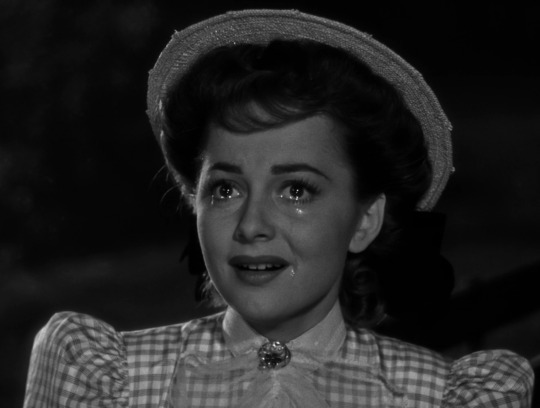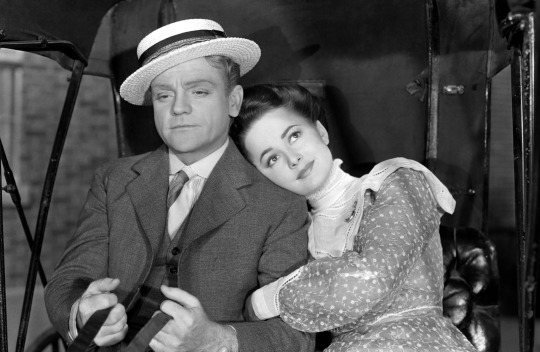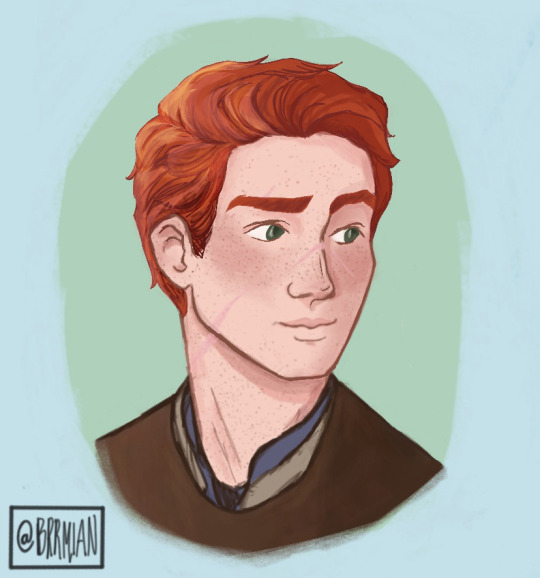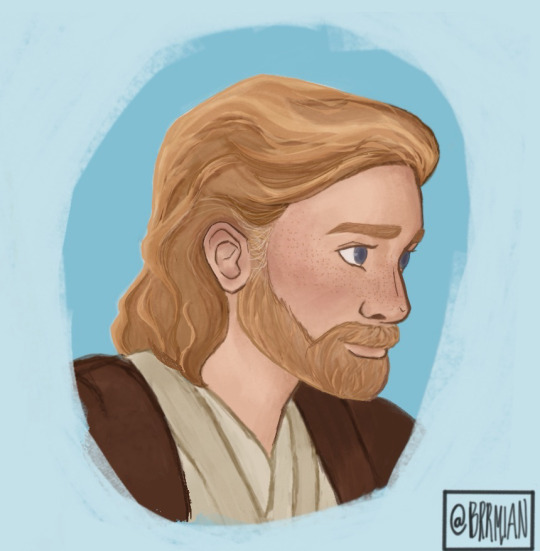#the strawberry blonde
Explore tagged Tumblr posts
Text







THE STRAWBERRY BLONDE (1941) dir. Raoul Walsh

#filmedit#oldhollywoodedit#The Strawberry Blonde#old hollywood#classicfilmsource#classicfilmblr#filmgifs#silverscreendames#moviegifs#fyeahmovies#*
648 notes
·
View notes
Text

Rita Hayworth, James Cagney and Olivia de Havilland photographed for 'The Strawberry Blonde' (1941).
52 notes
·
View notes
Text


The Strawberry Blonde (1941)
#Hiiiiii queen 🥺🤍#olivia de havilland#the strawberry blonde#the strawberry blonde 1941#m#thank you @ the film foundation!#James Wong Howe
59 notes
·
View notes
Photo

The Strawberry Blonde (1941)
During the height of the Old Hollywood Studio System – when studios themselves contracted directors, actors, writers, and other craftspersons – Warner Bros. found its niche as the “dark” studio. Warners might not have invented the gangster picture, but they codified its archetypes and tropes, becoming synonymous with the subgenre. In the early 1940s, director Raoul Walsh (a film noir pioneer; 1940’s They Drive by Night and 1941’s High Sierra) was nearing the peak of his career and actor James Cagney (1938’s Angels with Dirty Faces, 1949’s White Heat) was perhaps Warners’ most bankable star. Walsh was known for his proto-noir works and crime dramas; Cagney arguably the era’s definitive gangster actor. By 1941, both needed something different to work with.
Adapted by brothers Julius J. and Philip G. Epstein from James Hagan’s pastoral stage play One Sunday Afternoon, The Strawberry Blonde was exactly what both men sought. The Strawberry Blonde – often billed as a romantic comedy because it is a much lighter adaptation than 1933’s One Sunday Afternoon (starring Gary Cooper and Fay Wray) – is a celebration of simple, unadorned love. Though not a gag-a-minute comedy, Walsh’s uncharacteristic film shines through the performances from Cagney and especially Olivia de Havilland (three years removed from The Adventures of Robin Hood and two from Gone with the Wind). It is a joyous and nostalgic production; perhaps it should be no wonder it was a career favorite film for Walsh and a highlight for Cagney.
The Strawberry Blonde occupies two time periods. The film is set in New York City sometime in the late nineteen aughts or early 1910s, but primarily told through flashback during the late 1890s. In the flashback, Biff Grimes (James Cagney) aspires to become a dentist and yearns for a strawberry blonde socialite named Virginia Brush (Rita Hayworth; whose singing voice is, in a fleeting scene, not dubbed for the only time in her career). Along with his buddy and soon-to-be business partner, Hugo Barnstead (Jack Carson), they go on a messy double date with Virginia and her friend, the nurse and suffragist-leaning Amy Lind (Olivia de Havilland). Upon first impressions, Biff considers Amy to be the less attractive, amusing, and sociable girl. When fate – or, more precisely, Hugo’s duplicity – intervenes, Biff and Amy find love together and marry. While Biff begins studying for a dentistry diploma by mail correspondence, the two navigate financial and personal travails. Despite the marriage, Biff harbors a stewing resentment towards Hugo and a lingering covetousness towards Virginia apparent in the film’s bookends.
Among the bit players are Alan Hale as Biff’s father; George Tobias as Biff’s and Amy’s Greek immigrant friend, Nicholas Pappalas; Una O’Connor as Mrs. Mulcahey; and George Reeves (a future television Superman) as a belligerent, loudmouth, mustachioed college man who – due to his sweater – I choose to believe is from Yale. The four actors listed here, all Warner Bros. contractees at the time, each have their memorable moments.
The Strawberry Blonde serves as a memorialization to the time of Walsh and Cagney’s upbringing, similar to Vincente Minnelli’s Meet Me in St. Louis (1944) at Metro-Goldwyn-Mayer (MGM) and, if one wants to draw a modern throughline, the Duffer Brothers’ Stranger Things. In many ways, the film also feels like a musical. There are numerous diegetic performances of songs – whether by our central cast or a band – popular during the turn of the century. “The Band Played On” (from which the film derives its title; “Casey would waltz with a strawberry blonde / and the band played on”), “Bill Bailey”, “The Fountain in the Park”, “Meet Me in St. Louis”, “Wait ‘Till the Sun Shines, Nellie”, and much more fill the soundtrack. Composer Heinz Roemheld’s (1942’s Yankee Doodle Dandy, 1947’s The Lady from Shanghai) work adapts many of these songs into a boisterous, energetic score. Roemheld knows when to dial his orchestra back during the film’s most intimate scenes, but this wall-to-wall score evokes the period. Ostensibly, according to the screenplay, it was a time of romantic walks and live music performances in almost all social settings. In a sense, these decisions make The Strawberry Blonde into a sort of half-musical.
With his most recent movie being the film noir High Sierra (1941) with Ida Lupino and Humphrey Bogart, the transition from a largely outdoors-set crime drama to interior-heavy romantic comedy nevertheless suited Walsh. Walsh receives immeasurable help from one of the best cinematographers ever in James Wong Howe (1941’s Abe Lincoln in Illinois, 1963’s Hud). Howe’s signature high-contrast, low key lighting – generally associated with film noir – is not present much in The Strawberry Blonde. But what Walsh and Howe accomplish is making a bygone decade contemporary again. Outside the film’s romantic scenes including Cagney and de Havilland or Cagney and Hayworth, the film’s frames overflow with activity. With masterful use of blocking and mise en scène in these moments, Walsh and Howe’s frames are always dynamic, moving – but not swooping – alongside masses of extras and supporting characters rather than staying put, as if taking still photography. A static camera during Biff’s dates out on town would immediately render The Strawberry Blonde as a dusty artifact, a creaky throwback. Stationary cinematography has its uses when there are plenty of actors on-screen, but such a decision would make this remake too much like its 1930s original. Instead, in conjunction with Orry-Kelly’s (1951’s An American in Paris, 1959’s Some Like It Hot) outstanding costume design, the past leaps out of the history books and memories to be present again.
youtube
The notable instances in which Walsh and Howe keep their camera as rigid as possible are when Biff finds himself at the park bench where he and Amy first met. The set for the park also happens to be art director Robert M. Haas’ (1941’s The Maltese Falcon, 1949’s The Inspector General) plainest craftsmanship in the entire film. These scenes are the most obviously soundstage-bound moments – the too-perfect grass, the flatness, and lack of discernible lighting – despite the extras strolling in the deep background. The Strawberry Blonde’s park scenes mark the beginning and the renewal of Biff and Amy’s relationship, rendering them arguably the romantic highlights of the film. The contrast from these scenes to places such as the beer garden, the Central Park Zoo, or the Statue of Liberty make them the least “present” of the film. Some viewers less experienced in Old Hollywood (or those who, wrongfully, dismiss the style altogether) might complain about the obvious artifice in those park bench scenes with Biff and Amy, but my goodness does the aesthetic contrast make one take notice. Not only that, but the Epstein brothers’ dialogue for Cagney and de Havilland here is gently funny, and filled with warmth.
James Cagney, with his vaudeville background, was known for his physically exaggerated performances that nevertheless maintained a raw emotional core. That works to his benefit throughout The Strawberry Blonde, in which the character of Biff often sounds calm and measured, but his words bely fearfulness and bitterness. Despite the tough-guy gangster persona he often played in Warners’ gangster pictures, there are shades of Cagney’s later performance as George M. Cohan in Yankee Doodle Dandy here. Look at the grace in his dancing at the beer garden, a seemingly spontaneous cartwheel upon learning wonderful news, and how he putters about restlessly when conversing with Amy for the first time while expecting Virginia to show up. But also notice his weariness during the film’s bookends, how he accepts – but does not despair about – his station in life.
Olivia de Havilland is Cagney’s equal in this film, and a great foil to Rita Hayworth (whose character of Virginia is depicted as more conventionally attractive, but possesses a casual cruelty and vanity that gradually reveals itself). A middle-class nurse is an unusual role for an actress known at the time for mostly playing rich women and/or Errol Flynn’s love interest in swashbucklers or Westerns. As Amy, de Havilland curiously receives two “introductory” scenes in the film – both radically different from the other in storytelling function, reflecting the rarity of a second first impression and Biff’s tendency to see only surface details. Seemingly reserved but playful when she wishes to be, de Havilland’s Amy is an absolute delight of a character from the moment she appears. One crucial moment late in the film – in which Biff is dancing around an implied truth so that he can soften the blow for Amy – is heartbreaking acting from both. De Havilland’s movement and her glance outside the window in that scene epitomizes the agony in that moment. Knowing both actors’ resumes, I initially came into The Strawberry Blonde thinking that, on paper, Cagney and de Havilland would be a romantic mismatch. What a happy surprise it is to be completely wrong.
Unlike contemporary films that might take a nostalgic trip to a decade like the 1970s, ‘80s, or ‘90s, The Strawberry Blonde feels, at times, truly transporting. The incredible attention to visual details and especially the diegetic music (too often those newer nostalgia-driven movies resort to pin drops of non-diegetic music) help immensely. Though the film suggests an immigrant experience that would have been appropriate for turn-of-the-century New York, The Strawberry Blonde declines to say more about it – most likely a result of the original source material (“pickaninny”, a derogatory term that refers to black or dark-skinned children, is casually used in a song’s lyric).
At the center of this rich period detail lies an honest love between two people flowing through life’s currents. Sometimes their love is troubled with melodramatics, but they find ways to comfort and help the other with humor and goodness. Sure, it can be sentimental stuff. But it endures an upsettingly difficult test. The Strawberry Blonde has no designs to being other than a sincere love story and a fond lookback of another time. As such, it triumphs – with just one more chorus of “The Band Played On”, if you please.
My rating: 7.5/10
^ Based on my personal imdb rating. My interpretation of that ratings system can be found in the “Ratings system” page on my blog (as of July 1, 2020, tumblr is not permitting certain posts with links to appear on tag pages, so I cannot provide the URL). Half-points are always rounded down.
For more of my reviews tagged “My Movie Odyssey”, check out the tag of the same name on my blog.
#The Strawberry Blonde#Raoul Walsh#James Cagney#Olivia de Havilland#Rita Hayworth#Jack Carson#George Tobias#Una O'Connor#George Reeves#Lucile Fairbanks#Julius J. Epstein#Philip G. Epstein#James Wong Howe#Heinz Roemheld#Hal B. Wallis#Orry Kelly#WB100#TCM#My Movie Odyssey
12 notes
·
View notes
Text
Trump would be such a good drag queen like just such an unbelievably incredible and talented drag queen it's such a bummer that he's decided to be a fascist and a threat to democracy because that cunt would devour at the House of Yes
such a loss
102K notes
·
View notes
Text

scott’s a pool shark logan knows this and still gets mad when he loses
#scott summers#cyclops#Logan#logan howlett#wolverine#scogan#x men#idk I have a soft spot for Scott’s new hair it is very cute to me… strawberry blond… an angel
2K notes
·
View notes
Text
💙 Alina Alexeevna 🤍, a sweet cutie!
IG: Liinaliiis
1K notes
·
View notes
Text


they make me feel seen
#because. yknow. im a redhead#and here’s the thing!!! before u say obi isn’t ginger i would argue that’s he’s strawberry blond#definitely not fire engine red like cal lmao but he is still a redhead so he counts!!!#obi wan kenobi fanart#obi wan kenobi#cal kestis fanart#cal kestis#attack of the clones#jedi fallen order#sw jfo#jedi survivor#swtcw#sw art#sw fanart#obi wan fanart#sw prequels#sw tcw#star wars#star wars aotc#star wars rots#ewan mcgregor#cameron monaghan#sw tcw fanart#jedi fanart#star wars fanart#fanart#tcw fanart#my art
2K notes
·
View notes
Photo
pickurselfup:
Olivia de Havilland and Rita Hayworth
on the set of The Strawberry Blonde (1941)

26 notes
·
View notes
Text







Now, Biff, do you think I'm the kind of a girl who just goes around kissing boys?
RITA HAYWORTH as VIRGINIA BRUSH in THE STRAWBERRY BLONDE (1941) dir. Raoul Walsh

#filmedit#oldhollywoodedit#The Strawberry Blonde#Rita Hayworth#old hollywood#filmgifs#silverscreendames#fyeahmovies#moviegifs#classicfilmblr#classicfilmsource#*
975 notes
·
View notes
Text

It looks better off 🫣
#lingerie#garter lingerie#petitegirl#petite woman#small tiddy gf#small tiddies#pale women#pale goddess#pale girl#cute blond#cute girl#girlnextdoor#sweet and sexy#sexy as fuck#cute and hot#hot as hell#pretty#very elegant#elegant woman#british girls#english girl#english rose#natural girl#strawberry blonde#mirror selfie#thigh g@p#thigh g4p#gorgeous legs#great legs#short girl
484 notes
·
View notes
Text

rook [after drinking several bottles of bad wine together and listening to them trying to one-up each other]: "that's nice boys, but i could take you both! at the same time!" (davrin is gonna be smug because he managed to get BOTH these idiots to finally rest for once) (spite is letting lucanis sleep, he's hanging out with assan) (these two are my main party, and lol guilty pleasure ot3, and lucanis is still demi - he loves both!! of them!!)
#dragon age: the veilguard#dragon age fanart#lucanis dellamorte#davrin dragon age#davrin x rook x lucanis#rook dragon age#spite loves loves rook and his lucanis and is okay with davrin probably lmao so i don't see him being involved here lmao#the reason i have hands and the ability to draw is to satisfy my self-indulgent head canons and draw the world i want to see#Marisol de Riva#idk what color marisol's hair is like in game it's a white-ish blonde strawberry but i'm leaning towards making it more honey colored#for a first kiss tastes like reasons because i am ill
364 notes
·
View notes
Text
S4!Five Hargreeves x Reader
Strawberry Blonde - Mitski
‼️SPOILER WARNING FOR SEASON FOUR OF UMBRELLA ACADEMY BELOW THE CUT‼️
Okay so I know I wasn’t the only person absolutely crushed by season four of Umbrella Academy, but in the middle of grieving over it, I had the best/worst idea. Technically a fanfic idea, but I don’t know if I have the commitment to write the whole thing, so if someone else would like to, by all means :)
The events of season four start six years after the end of season three. Six years of (mostly) peace. Let’s just say Five met someone in that time (for the sake of making sense, I’ll refer to them as Lover). Met someone he found himself falling for. And they fell for him, too. And it was perfect. And for the first time in a painfully long time, Five was happy. Content. He had his suspicions about how long this peace would last, but… for now, things were good. More than good, they were wonderful. He’d met the love of his life.
And then the events of season four begin to happen. And Lover is there with the group the whole time. At this point, they’re family, too. They want to help, and Five wants them to stay close to him.
Until he and Lila decide to go on their own on the subway, leaving Lover with the others. And in the seven years Five and Lila are stuck together, the same thing happens. And when they finally return, Lover knows something is off. And when the truth comes out, their whole world comes crashing down.
Diego grows angry. Lover just grows somber. It’s even worse, because when they look at Five again, his expression is different. The aching love that used to shine in his eyes whenever he looked at them… it’s dulled to something faint. Still there, deep down, but… unsure. As if he’s questioning himself. Questioning what he should do now. Who he’d pick if given the choice.
Of course, he’s not given the choice. Not even the choice to take Lover far away and talk to them and really explain and try to do something. No, no… the world’s ending. For the final time. And he knows how to make sure it never comes to an end ever again.
Lover’s there for the entire conversation. Every bit of grief and anger they’d felt towards Five suddenly melts away, replaced by desperation. They’d let the world end for the rest of eternity if… if it meant maybe things could be different. If it meant maybe he’d love them, and maybe he’d never love anyone else besides them.
They’re eventually forced to leave with Lila’s family and get on the subway. And while everyone else is confused and emotional, they’re curled on the ground, gasping and sobbing, knowing what this means.
And the Hargreeves stop the world from ending. And all the timelines reset. And everyone else in the world gets their happy ending.
And Lover thinks they’re happy. They do. But they never fall in love again. For some reason, every time they think they find someone, an aching pain in their chest makes them hesitate. An unfamiliar voice calling their name makes them pause. A flash of something, perhaps a memory, too fast to register but not fast enough to ignore the heart wrenching pain of, makes them withdraw. It’s almost as if…
They’re waiting for someone that never existed.
°。°。°。°。°。°。
So! When I had this idea, I was listening to Strawberry Blonde by Mitski, and here’s how the lyrics played out in my head:
I love everybody because I love you
When you stood up, walked away, barefoot
And the grass where you lay left a bed in your shape
I looked over it and I ached
(12:00 PM. August 8th, 2024. Lover’s enjoying their day in the park, sitting in the grass, eyes shut against the light breeze and warm sun. They turn to their side, almost as if to tell someone about how lovely the weather is. But no one’s there. A weird pain begins to ache in their heart.)
I love everybody because I love you
I don't need the city, and I don't need proof
All I need, darling, is a life in your shape
I picture it, soft and I ache
(Others—perhaps friends or family—come over and greet Lover, noticing their confused and distant expression, and ask what’s wrong. Nothing, they say, though they can’t escape the deep longing in their chest for… something that was never there.)
Look at you, strawberry blond
(Flashback timeeee- or… alternate timeline time? Flashback to a time in an alternate timeline, there we go.)
Reach out the car window tryna hold the wind
You tell me you love her, I give you a grin
Oh, all I ever wanted was a life in your shape
So I follow the white lines, follow the white lines
Keep my eyes on the road as I ache
(Shows Five and Lover together, in love, making memories together. Happy.)
Look at you, strawberry blond
Fields rolling on
I love it when you call my name
Can you hear the bumblebees swarm?
Watching your arm
I love it when you look my way
Look at you, strawberry blond
Fields rolling on
I love it when you call my name
Can you hear the bumblebees swarm?
Watching your arm
I love it when you look my way
(Events of season four began to play out, but ofc with Lover being part of the story.)
Look at you, strawberry blond
Fields rolling on
I love it when you call my name
Can you hear the bumblebees swarm?
Watching your arm
I love it when you look my way
(The climax of the story. Flashes of the last two episodes. Five and Lila returning, the explanation, the heartbreak, Five finding out how to save the world for good, Lover meeting his gaze one last time as the subway pulls away forever.)
Isaiah, Isaiah, Isaiah
(Lover repeating his name to themself, trying to remember for as long as possible, not able to let go.)
Isaiah, Isaiah, Isaiah
(Flashback ends, returns to Lover in the grass on that sunny day, murmuring the name to themself. They’re not quite sure why.)
°。°。°。°。°。°。
I hope you all enjoyed this little idea! I got a little rambly and wrote WAY MORE than I planned on, but it’s an idea I’ve fallen in love with this past hour and I wanted to be able to share it with all of you <3
#five hargreeves#umbrella academy#five hargreeves x you#five hargreeves x reader#five hargreeves fanfic#five hargreeves imagine#the umbrella academy x reader#umbrella academy x reader#the umbrella academy imagine#the umbrella academy 4#the umbrella academy#umbrella academy season 4#umbrella academy season four#angst#strawberry blonde#mitski#imagines#fanfiction#fanfic ideas#five tua#tua five#tua fandom
520 notes
·
View notes
Text

help... i bismuth her
#requested by kingllector!#separately but i immediately assumed it said bispearl so here we go#steven universe#bispearl#bismuth#su bismuth#su pearl#pearl su#su human au#my art#fanart#stylized#2024#described#uhhhhhh this was supposed to be a human au but i didnt change much. how can i improve on perfection#the setting here is an attempt to replicate the very strict unchanging image i see every time i hear strawberry blonde#shes LITERALLY strawberry blonde#ok in other news now im sad about bismuth screentime again. we were robbed
568 notes
·
View notes
Text






Dr. Allison Cameron in S2E9: "Deception".
#house md#houseedit#2#tvedit#tvgifs#allison cameron#jennifer morrison#her roots were fighting for their liiiife in this ep. the next one is the final battle and they lost </3#but i think this is her prettiest hair episode. we love you strawberry blonde cam#usersole#femalescharacters#dailytvwomen#ladiesofcinema
317 notes
·
View notes
